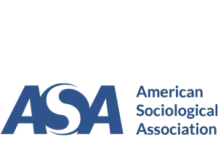 A new study by researchers at New York University and the University of Pennsylvania finds that school teachers believe that mothers and fathers of immigrant or minority students are less involved in their children’s education. The authors believe that such perspectives hamper the academic trajectory of those students, leading to lower grades and fewer recommendations for academic honors.
A new study by researchers at New York University and the University of Pennsylvania finds that school teachers believe that mothers and fathers of immigrant or minority students are less involved in their children’s education. The authors believe that such perspectives hamper the academic trajectory of those students, leading to lower grades and fewer recommendations for academic honors.
“We know from prior work that parents from different racial/ethnic and immigrant backgrounds have different levels of involvement,” said Hua-Ya Sebastain Cherng, a co-author of the study and an assistant professor of international education at New York University. “But in this study, we show that regardless of parents’ level of involvement, teachers perceive that certain parents are more involved than others, and in ways that suggest the power of racial stereotypes.”
 The authors explain that two students whose academic potential look nearly identical on paper actually diverged in reality if their teacher viewed their parents’ involvement differently. Students whose parents were considered less involved had lower grades and less of a chance of being recommended for academic honors like Advanced Placement courses.
The authors explain that two students whose academic potential look nearly identical on paper actually diverged in reality if their teacher viewed their parents’ involvement differently. Students whose parents were considered less involved had lower grades and less of a chance of being recommended for academic honors like Advanced Placement courses.
“In other words, how teachers perceive how involved parents are influences the grade that teachers give students and their recommendations for future coursework,” says Dr. Cherng. “And if these perceptions are themselves biased, it results in more racial inequality.”
The study, “How Far Can the Apple Fall? Differences in Teacher Perceptions of Minority and Immigrant Parents and Their Impact on Academic Outcomes,” was published in the August issue of Social Science Research. It may be accessed here.












I agree. Teacher biases have a tremendous impact not only on how they treat children but what they feel certain children are able to achieve. Therefore, they set the expectations low and do not encourage minority children to excel beyond that low communicates expectation.
So now that we know this, what do we do to educate teachers to be aware of their biases and how to not let those biases impact student achievement?